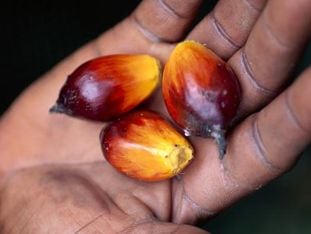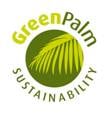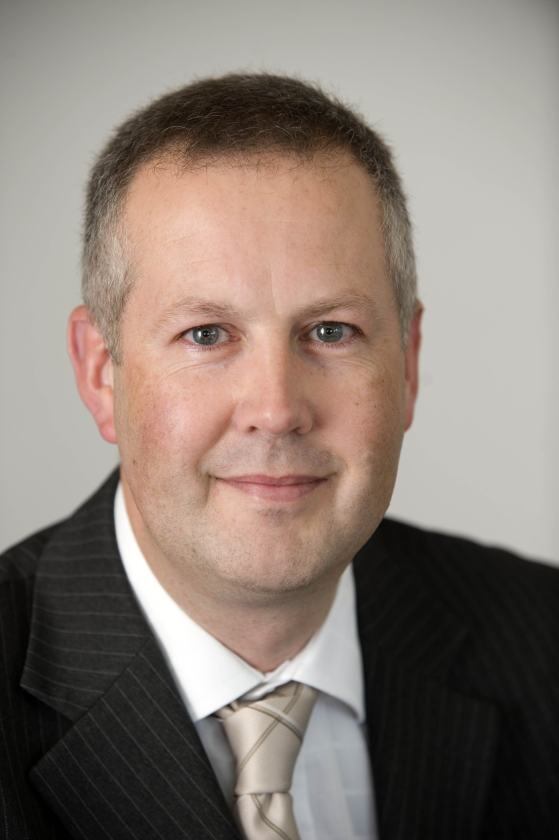Several leading brands from Hershey to Unilever, General Mills and PepsiCo have pledged that by the end of 2015, they will only use oil that can be directly traced back to plantations that have been certified by the Round Table for Sustainable Palm Oil (RSPO).
However, the path to reaching this goal is challenging and rocky, WWF’s agriculture vice president Dave McLaughlin told FoodNavigator-USA.
RSPO-certified derivatives still prohibitively expensive for many US buyers
While some palm oil refiners are vertically integrated - for example New Britain Palm oil only uses oil from company owned plantations in Papua New Guinea in its UK-based refinery - most major US refiners are not, he said.
Sustainable palm oil: The options
Segregated: If you want to use the RSPO trademark and claim ‘This product contains certified sustainable palm oil’, you must use palm oil that has been segregated throughout the supply chain and is traceable directly back to its RSPO-certified source.
Mass balance: This combines some segregated RSPO certified oil and some standard oil, and allows users to use the RSPO trademark (‘Mixed’) and claim: ‘Contributes to the production of certified sustainable palm oil’.
GreenPalm (book and claim): Buyers of GreenPalm certificates are guaranteed that a tonnage of palm oil/derivatives equivalent to the tonnage they use has been produced from RSPO-certified plantations. While you can't guarantee the actual oil you are buying is sustainable, you know the amount you use has been produced sustainably. Participants can use the GreenPalm logo and claim: ‘Supports the production of RSPO-certified sustainable palm oil’.
And the costs of segregating oil from RSPO plantations throughout the global palm oil supply chain - where oil from multiple plantations is intermingled at every level - are significant, pushing up the price premium for RSPO-certified palm oil derivatives in particular, to a “prohibitive” level, he said.
"And the case for segregated palm kernel oil is even more complicated and costly."
Meanwhile, it’s hard for refiners to make a return if they are paying a large premium for buying RSPO-certified oil but can only get a return on that investment for palm stearin and not olein (olein is the global frying oil of choice and Chinese and Indian buyers are not demanding the sustainable variety).
And as a result, while 12% of palm oil produced in 2011 was RSPO certified, only half of that amount was purchased or earned a premium, with segregated or mass-balance supplies (see box, right) from vertically integrated producers selling well, but many non-integrated growers not seeing the benefits.
GreenPalm is a transitional tool to give growers the right market signals

Ultimately, of course, if most growers were RSPO certified, refiners would not need to segregate oil and prices would come down, said McLaughlin. But growers need to be incentivized to switch.
“And the best way to do that right now is to buy GreenPalm certificates [which guarantee that a tonnage of oil/derivatives equivalent to the tonnage buyers use has been produced from an RSPO-certified plantation], he said.
“We’ve got to build critical mass on the ground. GreenPalm is a transitional tool to give growers the right market signals [that it is worth their while getting RSPO audited and certified].”
This way growers earn extra cash per ton as they are allocated one GreenPalm certificate per ton (certificates are traded at greenpalm.org) and more plantations will be RSPO-certified, he said.
“Unilever recognized that this is the route the industry will probably have to go down when it recently committed to buying GreenPalm certificates for 100% of its palm oil needs although its ultimate goal is to buy all its palm oil from fully-traceable sources by 2020.”
The more certifications that happen, the easier it will be to transition to physical supply chains
In other words, GreenPalm should ultimately do itself out of a job as it helps stimulate production of sustainable palm to such an extent that big refineries will be able to supply affordable sustainable products, he said.
"My biggest concern is that given the fact that non integrated producers are not receiving any benefits, the incentive to certify plantations is not there. Unilever’s approach on GreenPalm will help address that, but we need others users of palm oil to follow suit to really provide positive market signals now.
"The more certifications that happen, the easier it will be to transition to physical supply chains and we need to recognize that this is a process that will evolve over time."
China and India must buy into sustainable palm too

If the game is really going to change, however, China and India must also buy into sustainable palm, he said.
“At the moment, the US accounts for just 2% of palm oil use and Europe about 11-12%, and even if that 13-14% of global demand is demanding sustainable palm, we’re going to hit a ceiling in terms of potential markets.”
However, there are some encouraging signs, with Indian manufacturers becoming “more receptive” to sustainable palm, the Chinese government taking more of an interest and major global manufacturers with a presence in Asia helping to raise awareness, he said.
“Some really heavy lifting is needed going forward, but you can look at it this way. The RSPO has only been active since November 2008 and in less than four years 12% of global production is RSPO certified. That’s pretty remarkable.”
The complex derivative market is served well by GreenPalm

GreenPalm general manager Bob Norman agreed, observing: “With regards to uptake, we can always improve. [But] that is not a bad achievement after four years of certified material being available to the market place."
But he added: “GreenPalm not only serves as a first supply chain option for many companies but also for new demand markets such as India and China.
“The complex derivative market is also served well by GreenPalm and last but not least is viewed as an important option to support remote independent smallholders that perhaps don’t have access to a physical sustainable demand market.
“GreenPalm certificate trades account for 72% of all RSPO trades.”
Click here to read about Walmart's sustainable palm commitments.
